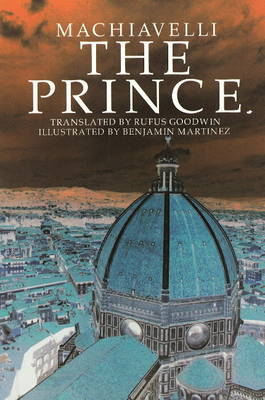Reviewed by celinenyx on
To be honest I don't know nearly enough of early Mediterranean history to understand all Machiavelli's examples fully, but that didn't matter much in the overall picture. Some people see The Prince as a satire, while others think it was a serious book intended as mirrors for princes, a genre of books that are basically meant as guidebooks for princes. I think the truth might be somewhere in between; it's very well thought out and his ideas probably work, which seems an awful lot of work if you're only interested in writing a satire. On the other hand it clearly lacks any kind of morality or sense of good and bad, which makes me doubt whether or not Machiavelli was a hundred percent serious.
A very interesting little book, The Prince makes you think about all the factors that come in when ruling a country. From armies and reputation, Machiavelli touches upon them all and teaches us how to keep our masses just the right amount of scared.
Reading updates
- Started reading
- 25 June, 2013: Finished reading
- 25 June, 2013: Reviewed
